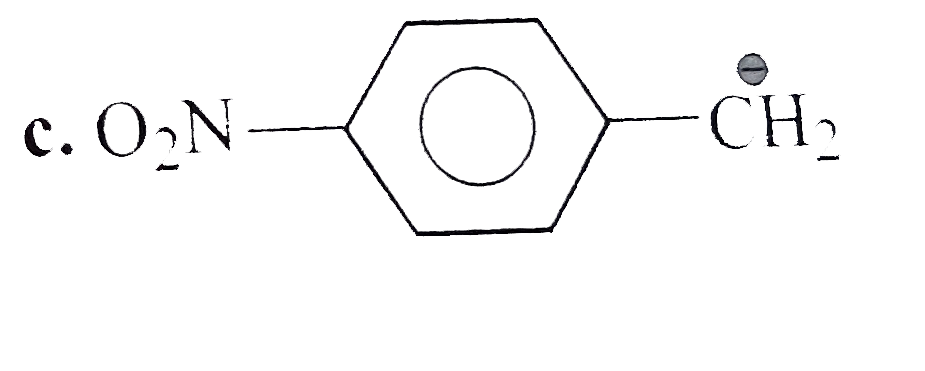An organic reaction occurs by using reagents called electrophiles and nucleophiles via the formation of some reactive intermediates called carbocations, carbanions, free radicals, carbenes, nitrenes, radical cations, and radical anions.
Which of the following contains electrophiles only ?
Br⊕,PH3,H2O
NO⊕2,:CBr2,SO3
NH3,H2O,A1Br3
A1C13,CH2=CH2,SO3
The correct Answer is:B
Step by step video, text & image solution for An organic reaction occurs by using reagents called electrophiles and nucleophiles via the formation of some reactive intermediates called carbocations, carbanions, free radicals, carbenes, nitrenes, radical cations, and radical anions. Which of the following contains electrophiles only ? by Chemistry experts to help you in doubts & scoring excellent marks in Class 11 exams.
Updated on:21/07/2023Topper's Solved these Questions
- GENERAL ORGANIC CHEMISTRYBOOK - CENGAGE CHEMISTRYCHAPTER - GENERAL ORGANIC CHEMISTRYEXERCISE - Multiple Correct
22 Videos
- GENERAL ORGANIC CHEMISTRYBOOK - CENGAGE CHEMISTRYCHAPTER - GENERAL ORGANIC CHEMISTRYEXERCISE - Single Correct
25 Videos
- GENERAL ORGANIC CHEMISTRYBOOK - CENGAGE CHEMISTRYCHAPTER - GENERAL ORGANIC CHEMISTRYEXERCISE - Concept
16 Videos
- CLASSIFICATION AND NOMENCLATURE OF ORGANIC COMPOUNDSBOOK - CENGAGE CHEMISTRYCHAPTER - CLASSIFICATION AND NOMENCLATURE OF ORGANIC COMPOUNDSEXERCISE - Analytical and Descriptive Type
3 Videos
- HYDROGEN, WATER AND HYDROGEN PEROXIDEBOOK - CENGAGE CHEMISTRYCHAPTER - HYDROGEN, WATER AND HYDROGEN PEROXIDEEXERCISE - Subjective Archive (Subjective)
3 Videos
Similar Questions
Knowledge Check
An organic reaction occurs by using reagents called electrophiles and nucleophiles via the formation of some reactive intermediates called carbocations, carbanions, free radicals, carbenes, nitrenes, radical cations, and radical anions.
Which of the following contains nucleophiles only ?APH3,ROH,CH2=CH2BSnF4,BeF2,NH3CCr3+,ӨNH2,H2OD:CCl2,IӨ,HӨAn organic reaction occurs by using reagents called electrophiles and nucleophiles via the formation of some reactive intermediates called carbocations, carbanions, free radicals, carbenes, nitrenes, radical cations, and radical anions.
The most stable free radical is :APhCH2.CH2BMe.CH2CMe2.CHDPh.CHMeAn organic reaction occurs by using reagents called electrophiles and nucleophiles via the formation of some reactive intermediates called carbocations, carbanions, free radicals, carbenes, nitrenes, radical cations, and radical anions.
The most stable carbanion is :APhCH2ӨCH2BPhӨCH2C D
D
Types OF Reactions||electrophile|| Nucleophile and Free radical Reaction
View SolutionAn organic reaction occurs by using reagents called electrophiles and nucleophiles via the formation of some reactive intermediates called carbocations, carbanions, free radicals, carbenes, nitrenes, radical cations, and radical anions.
The most stable carbocation is :
View SolutionAn organic reaction occurs by using reagents called electrophiles and nucleophiles via the formation of some reactive intermediates called carbocations, carbanions, free radicals, carbenes, nitrenes, radical cations, and radical anions.
The least stable carbocation is :
View SolutionThe most Carbocations, carbanions, free radicals and radical cation are reactive carbon intermediates. Their hybrid orbitals respectively are
View SolutionWhich of the following reactions involve free radical as intermediate ?
View Solution